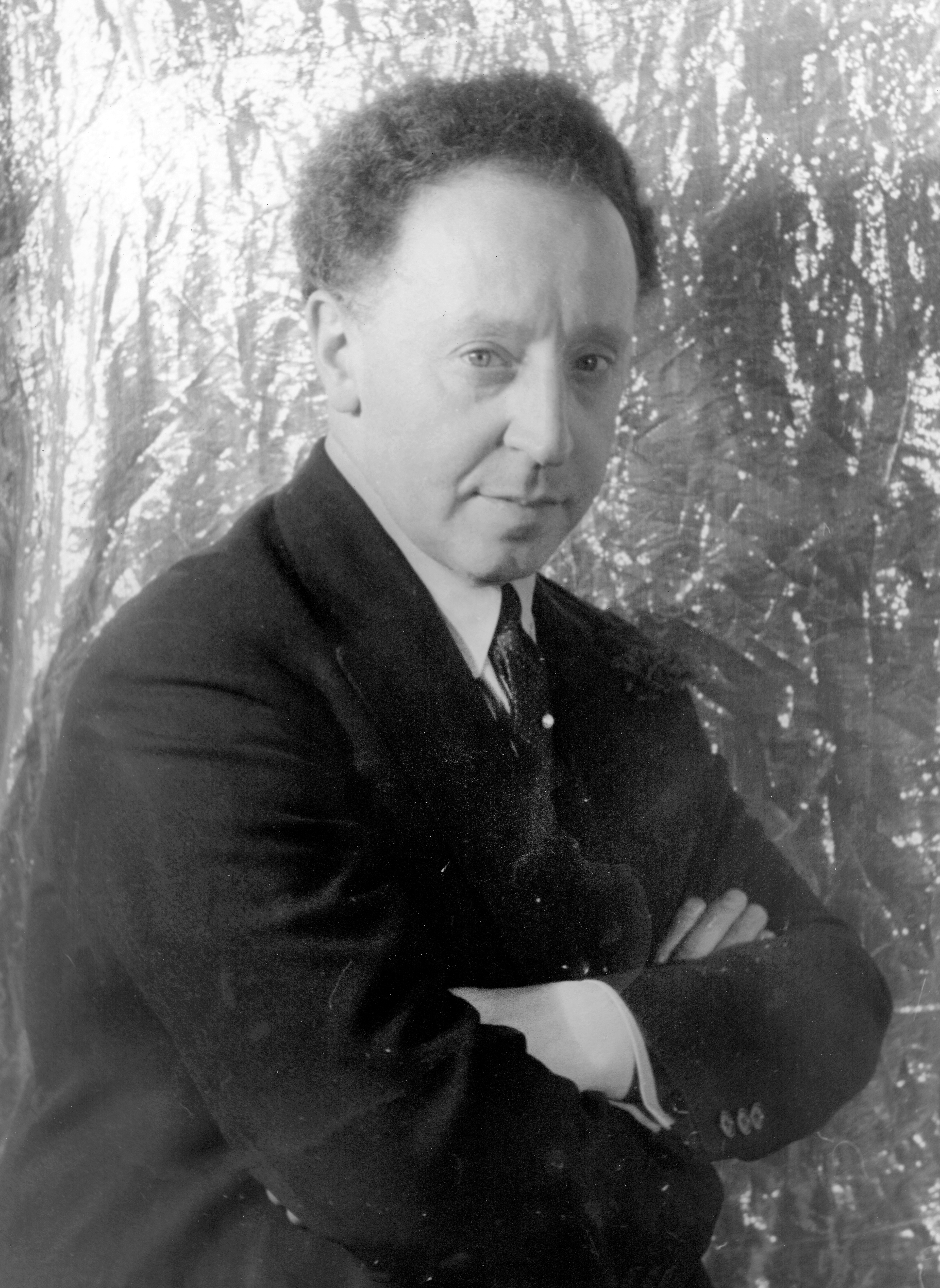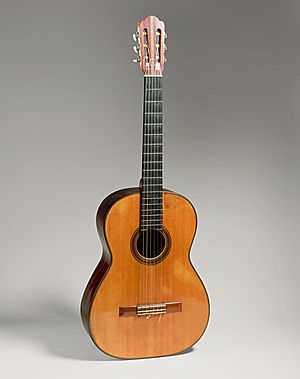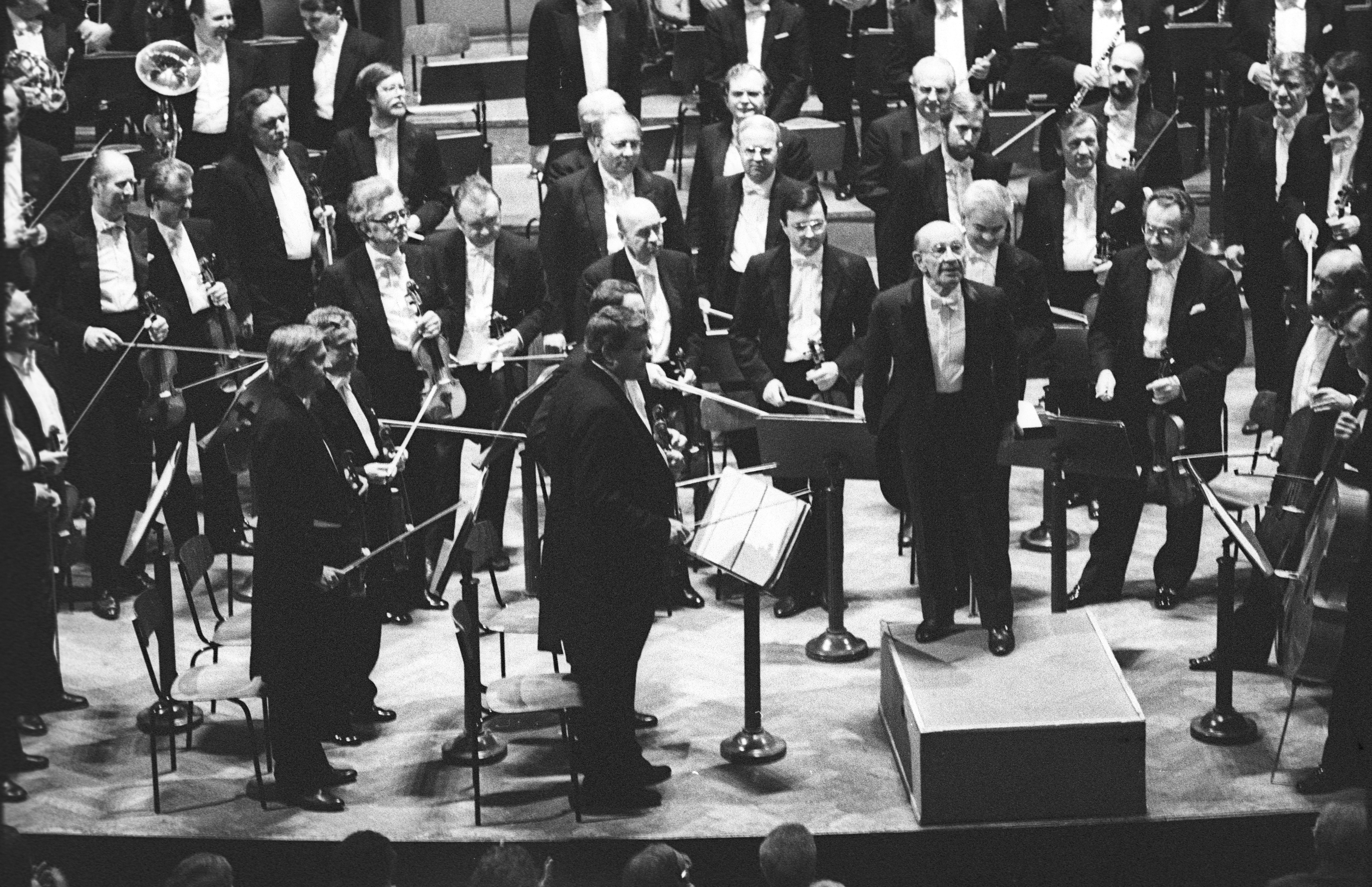|
Best Instrumental Soloist(s) Performance (with Orchestra)
The Grammy Award for Best Instrumental Soloist(s) Performance (with orchestra) was awarded from 1959 to 2011. From 1967 to 1971, and in 1987, the award was combined with the award for Best Instrumental Soloist Performance (without orchestra) and awarded as the Grammy Award for Best Classical Performance – Instrumental Soloist or Soloists (with or without orchestra). The award has had several minor name changes: * In 1959 the award was known as Best Classical Performance – Instrumentalist (with concerto scale accompaniment) * In 1960 it was awarded as Best Classical Performance – Concerto or Instrumental Soloist (with full orchestral accompaniment) * In 1961 it was awarded as Best Classical Performance – Concerto or Instrumental Soloist * In 1962 it was awarded as Best Classical Performance – Instrumental Soloist (with orchestra) * From 1963 to 1964 it was awarded as Best Classical Performance – Instrumental Soloist or Soloists (with orchestra) * In 1965 it was awarded ... [...More Info...] [...Related Items...] OR: [Wikipedia] [Google] [Baidu] |
Grammy Award
The Grammy Awards (stylized as GRAMMY), or simply known as the Grammys, are awards presented by the Recording Academy of the United States to recognize "outstanding" achievements in the music industry. They are regarded by many as the most prestigious, significant awards in the music industry worldwide. It was originally called the Gramophone Awards, as the trophy depicts a gilded gramophone. The Grammys are the first of the Big Three networks' major music awards held annually, and is considered one of the four major annual American entertainment awards, alongside the Academy Awards (for films), the Emmy Awards (for television), and the Tony Awards (for theater). The first Grammy Awards ceremony was held on May 4, 1959, to honor the musical accomplishments of performers for the year 1958. After the 2011 ceremony, the Recording Academy overhauled many Grammy Award categories for 2012. History The Grammys had their origin in the Hollywood Walk of Fame project in the 1950s. ... [...More Info...] [...Related Items...] OR: [Wikipedia] [Google] [Baidu] |
Fritz Reiner
Frederick Martin "Fritz" Reiner (December 19, 1888 – November 15, 1963) was a prominent conductor of opera and symphonic music in the twentieth century. Hungarian born and trained, he emigrated to the United States in 1922, where he rose to prominence as a conductor with several orchestras. He reached the pinnacle of his career while music director of the Chicago Symphony Orchestra in the 1950s and early 1960s. Life and career Reiner was born in Budapest, Austria-Hungary into a secular Jewish family that resided in the Pest area of the city. After preliminary studies in law at his father's urging, Reiner instead decided to pursue the study of piano, piano pedagogy, and composition at the Franz Liszt Academy. During his last two years there, his piano teacher was the young Béla Bartók. After early engagements at opera houses in Budapest and Dresden (June 1914 to November 1921), where he worked closely with Richard Strauss, he moved to the United States in 1922 to take t ... [...More Info...] [...Related Items...] OR: [Wikipedia] [Google] [Baidu] |
Henryk Szeryng
Henryk Szeryng (usually pronounced ''HEN-r-ik SHEH-r-in-g'') (22 September 19183 March 1988) was a Polish violinist. Early years He was born in Warsaw, Poland on 22 September 1918 into a wealthy Jewish family. The surname "Szeryng" is a Polish transliteration of his Yiddish surname, which nowadays would be spelled "Shering" in the modern Yiddish-to-English transliteration. Henryk started piano and harmony lessons with his mother when he was 5, and at age 7 turned to the violin, receiving instruction from Maurice Frenkel. After studies with Carl Flesch in Berlin (1929–32), he went to Paris to continue his studies with Jacques Thibaud at the Conservatory, graduating with a premier prix in 1937. Career He made his solo debut on 6 January 1933 playing the Brahms Violin Concerto with the Warsaw Philharmonic Orchestra under Romanian conductor George Georgescu. From 1933 to 1939 he studied composition in Paris with Nadia Boulanger. When World War II broke out, Wladyslaw ... [...More Info...] [...Related Items...] OR: [Wikipedia] [Google] [Baidu] |
Violin Concerto (Brahms)
The Violin Concerto in D major, Op. 77, was composed by Johannes Brahms in 1878 and dedicated to his friend, the violinist Joseph Joachim. It is Brahms's only violin concerto, and, according to Joachim, one of the four great German violin concerti: Instrumentation The Violin Concerto is scored for solo violin and orchestra consisting of 2 flutes, 2 oboes, 2 clarinets in A, 2 bassoons; 2 natural horns crooked in D, and 2 natural horns crooked in E, 2 trumpets in D, timpani, and strings. Despite Brahms' scoring for natural (non-valved) horns in his orchestral works, valved horns have always been used in actual performance, even in Brahms' time. Structure The concerto follows the standard concerto form, with three movements in the pattern quick–slow–quick: Originally, the work was planned in four movements like the second piano concerto. The middle movements, one of which was intended to be a scherzo—a mark that Brahms intended a symphonic concerto rather tha ... [...More Info...] [...Related Items...] OR: [Wikipedia] [Google] [Baidu] |
Josef Krips
Josef Alois Krips (8 April 1902 – 13 October 1974) was an Austrian conductor and violinist. Life and career Krips was born in Vienna. His father was Josef Jakob Krips, a medical doctor and amateur singer, and his mother was Aloisia, née Seitz. Krips was one of five sons. Krips went on to become a pupil of Felix Weingartner and Eusebius Mandyczewski. From 1921 to 1924, he served as Weingartner's assistant at the Vienna Volksoper, and also as répétiteur and chorus master. He then conducted several orchestras, including in Karlsruhe from 1926 to 1933. In 1933 he returned to Vienna as a resident conductor of the Volksoper and a regular conductor at the Wiener Staatsoper. He was appointed professor at the Vienna Academy of Fine Arts in 1935, and conducted regularly at the Salzburg Festival between 1935 and 1938. In 1938, the Nazi annexation of Austria (or Anschluss) forced Krips to leave the country. (He was raised a Roman Catholic, but would have been excluded from ... [...More Info...] [...Related Items...] OR: [Wikipedia] [Google] [Baidu] |
RCA Victor Symphony Orchestra
The RCA Victor Symphony Orchestra, sometimes also known as the Victor Symphony Orchestra, RCA Victor Salon Orchestra, the RCA Victor Orchestra and the RCA Orchestra, was an American studio orchestra founded in 1940 by the RCA Victor record label for the purposes of making recordings. The Victor Talking Machine Company had employed a studio orchestra since the days of acoustical recording early in the 20th century. In the 1920s, Victor established the Victor Salon Orchestra based at the company's headquarters in Camden, New Jersey. This group consisted of musicians primarily from nearby Philadelphia and New York City and was created by longtime Victor staff conductor and arranger Nathaniel Shilkret. The name later was used for free-lance orchestras, mainly in New York City, assembled as needed to make recordings for RCA Victor through the early 1960s. Its players were recruited primarily from the New York Philharmonic, the Metropolitan Opera, the NBC Symphony Orchestra, and other ma ... [...More Info...] [...Related Items...] OR: [Wikipedia] [Google] [Baidu] |
Arthur Rubinstein
Arthur Rubinstein ( pl, Artur Rubinstein; 28 January 188720 December 1982) was a Polish-American pianist."Artur Rubinstein" '''' He is widely regarded as one of the greatest pianists of all time. He received international acclaim for his performances of the music written by a variety of composers and many regard him as one of the greatest Chopin interpreters of his time. He played in public for eight decades. Early life [...More Info...] [...Related Items...] OR: [Wikipedia] [Google] [Baidu] |
2nd Grammy Awards
The 2nd Annual Grammy Awards were held on November 29, 1959, at Los Angeles and New York. Hosted by Meredith Willson, this marked the first televised Grammy Award ceremony, and it was aired in episodes as special '' Sunday Showcase''. It was held in the same year as the first Grammy Awards in 1959, and no award ceremony was held in 1960. These awards recognized musical accomplishments by performers for that particular year. Frank Sinatra and Duke Ellington each won three awards. Award winners *Record of the Year **Bobby Darin for "Mack the Knife" *Album of the Year ** Frank Sinatra for '' Come Dance with Me!'' *Song of the Year ** Jimmy Driftwood for "The Battle of New Orleans" *Best New Artist **Bobby Darin Children's *Grammy Award for Best Album for Children, Best Recording for Children **Peter Ustinov for ''Sergei Prokofiev, Prokofiev: Peter and the Wolf'' performed by Peter Ustinov & the Philharmonia Orchestra conducted by Herbert von Karajan Classical *Grammy Award for Be ... [...More Info...] [...Related Items...] OR: [Wikipedia] [Google] [Baidu] |
Enrique Jordá
Enrique Jordá (March 24, 1911 – March 18, 1996) was a Spanish- American conductor. Born in San Sebastián (Guipúzcoa, Spain), later on he was a naturalized US citizen. After conducting in Madrid, Cape Town and Antwerp, he was music director of the San Francisco Symphony from 1954 to 1963. He made several stereophonic recordings in San Francisco for RCA Victor in 1957 and 1958. He made several highly acclaimed recordings for Decca in the late 1940s and early 1950s of Spanish music with the London Symphony Orchestra, National Symphony Orchestra and Paris Conservatoire Orchestra, including two recordings of Nights in The Gardens of Spain with Clifford Curzon as soloist. Several of these have been reissued on the Dutton label. During his tenure in San Francisco he gave the world premiere of Joaquín Rodrigo's ''Fantasía para un gentilhombre'' with Andrés Segovia as the soloist. Jorda made recordings with both the San Francisco Symphony and the Symphony of the Air, sever ... [...More Info...] [...Related Items...] OR: [Wikipedia] [Google] [Baidu] |
Andrés Segovia
Andrés Segovia Torres, 1st Marquis of Salobreña (21 February 1893 – 2 June 1987) was a Spanish virtuoso classical guitarist. Many professional classical guitarists were students of Segovia or their students. Segovia's contribution to the modern-romantic repertoire included not only commissions but also his own transcriptions of classical or baroque works. He is remembered for his expressive performances: his wide palette of tone, and his distinctive musical personality, phrasing and style. Early life Segovia was born on 21 February 1893 in Linares, Jaén. He was sent at a very young age to live with his uncle Eduardo and aunt María. Eduardo arranged for Segovia's first music lessons with a violin teacher after he had recognised that Segovia had an aptitude for music. That proved to be an unhappy introduction to music for the young Segovia because of the teacher's strict methods, and Eduardo stopped the lessons. His uncle decided to move to Granada to allow Segovia to ob ... [...More Info...] [...Related Items...] OR: [Wikipedia] [Google] [Baidu] |
Erich Leinsdorf
Erich Leinsdorf (born Erich Landauer; February 4, 1912 – September 11, 1993) was an Austrian-born American conductor. He performed and recorded with leading orchestras and opera companies throughout the United States and Europe, earning a reputation for exacting standards as well as an acerbic personality. He also published books and essays on musical matters. Biography Leinsdorf was born to a Jewish family in Vienna, and was studying music at a local school by the age of 5. He played the cello and studied composition. In his teens, Leinsdorf worked as a piano accompanist for singers. He studied conducting at the Mozarteum in Salzburg, and later at the University of Vienna and the Vienna Academy of Music. From 1934 to 1937 he worked as an assistant to the noted conductors Bruno Walter and Arturo Toscanini at the Salzburg Festival. In November 1937, Leinsdorf travelled to the United States to take up a position as assistant conductor at the Metropolitan Opera in New Yor ... [...More Info...] [...Related Items...] OR: [Wikipedia] [Google] [Baidu] |
Los Angeles Philharmonic
The Los Angeles Philharmonic, commonly referred to as the LA Phil, is an American orchestra based in Los Angeles, California. It has a regular season of concerts from October through June at the Walt Disney Concert Hall, and a summer season at the Hollywood Bowl from July through September. Gustavo Dudamel is the current Music Director, Esa-Pekka Salonen is Conductor Laureate, Zubin Mehta is Conductor Emeritus, and Susanna Mälkki is Principal Guest Conductor. John Adams is the orchestra's current Composer-in-Residence. Music critics have described the orchestra as the most "contemporary minded", "forward thinking", "talked about and innovative", and "venturesome and admired" orchestra in America. According to Salonen, "We are interested in the future. We are not trying to re-create the glories of the past, like so many other symphony orchestras." "Especially since we moved into the new hall", continues Deborah Borda (former CEO), "our intention has been to integrate 21st-centu ... [...More Info...] [...Related Items...] OR: [Wikipedia] [Google] [Baidu] |
.jpg)




.jpg)